David Stratton names the year’s 10 best films
A veteran critic and a movie buff compare the year’s blockbusters, documentaries and world cinema and agree on this: we saw some great flicks
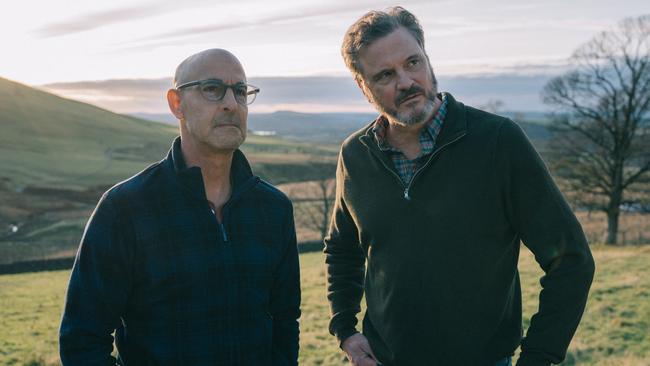
From David:
Cinemas in major cities in Australia were closed for weeks on end this year, resulting in long delays in the release of movies, some of which were held back for more than a year. Despite or because of this, some strong films emerged, sometimes from surprising sources.
While the Marvel and DC Comics strand of cinema tends to dominate the box office, and I’m not a huge fan, the better runners-up this year were mostly independently made. Although, when it finally emerged, No Time to Die proved to be a worthy culmination to Daniel Craig’s impressive stint as 007.
Films about injustice in the US – Blue Bayou, which criticised immigration policies, Judas and the Black Messiah which, like the Billie Holiday film, explored the ways in which the FBI targeted black Americans, and Paul Schrader’s The Card Counter, with its reminder of the atrocities committed in Abu Ghraib – were all worth seeing.
Women directors made their mark with Liesl Tommy’s Respect, a mostly successful biography of Aretha Franklin, Kelly Reichardt’s very original First Cow, and Emerald Fennell’s #MeToo-inspired Promising Young Woman. Other notable independent releases from the US included Lee Isaac Chung’s autobiographical Minari, about the experiences of a Korean family that migrates to rural Arkansas, and Todd Stephens’ Swan Song with its great central performance from veteran Udo Kier.

Some very good films came from a wide variety of countries. From Argentina there was the hugely engaging Heroic Losers by director Sebastian Borensztein; from Mexico, Michel Franco’s confronting New Order; from China, Zhang Yimou’s Cultural Revolution drama, One Second; from Iceland the strange and haunting Lamb; from Norway, Joachim Trier’s beautifully acted The Worst Person in the World; from Sweden, Roy Andersson’s typically beautiful and strange About Endlessness; and from Italy the intriguing Jack London adaptation, Martin Eden.
The best French film I saw this year was Herself, the story of a young man with the crazy idea of representing France in the Miss World beauty contest. I wasn’t a huge fan of the deliberately confronting Cannes winner Titane.
Two of the better British films of the year were the disturbing Fanny Lye Deliver’d, from writer-director Thomas Clay, a family drama set in 1657 that boasts the best-ever performance from Charles Dance, and Days of the Bagnold Summer, Simon Bird’s graphic novel-inspired comedy drama about an abandoned wife and her son.
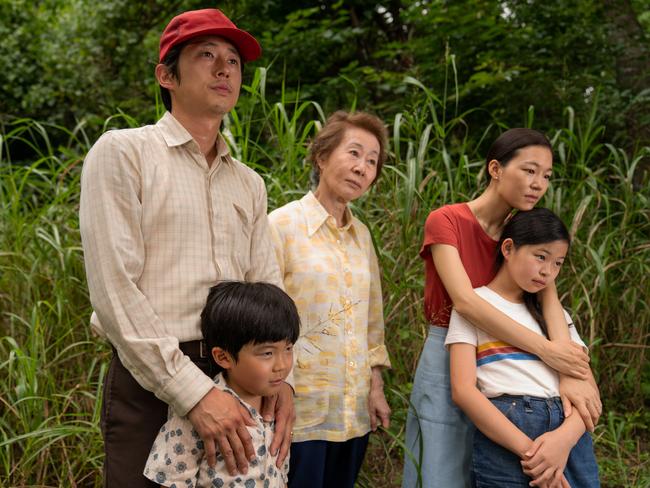
Apart from Nitram, the outstanding Australian films of the year were Glendyn Ivin’s Penguin Bloom, which was distinguished by Naomi Watts’s beautiful performance, and High Ground, Stephen Maxwell Johnson’s handsomely filmed drama about racism in the Top End in the early 1930s.
In addition to Collective, there were several documentary features of note. They included The Dissident, Bryan Fogel’s riveting, detailed probe into the murder of Saudi journalist Jamal Khashoggi; The Lost Leonardo, Andreas Koefoed’s delve into the art world and the mysterious painting Salvator Mundi which may, or may not, have been the real deal; and The Rescue, the definitive film about the rescue of the 12 Thai schoolboys trapped for days in an underground cave.
Two fine music documentaries emerged during the year: Edgar Wright’s The Sparks Brothers, which introduced many to the curious world of brothers Ron and Russell Mael; and Ahmir “Questlove” Thompson’s Summer of Soul, in which footage filmed at Harlem’s “Black Woodstock” in 1969 finally saw the light of day.
Two Australian documentaries about remarkable women, Marjorie Lawrence: The World at her Feet, directed by Wayne Groom, and Playing with Sharks, Sally Aitken’s excellent portrait of Valerie Taylor, were also screened in cinemas, as was the deeply moving tribute to the late David Gulpilil, My Name is Gulpilil, directed by Molly Reynolds.
In all, a varied, often exciting and challenging year in the cinema in which, despite the pandemic, the movies survived to entertain, educate and enthral us. Here are my picks for the cream of the 2021 crop, listed in alphabetical order.
Collective
(Alexander Nanau, Romania)
The best documentary feature in a year that provided several, and one of two challenging Romanian films to screen in cinemas, this expose of government maladministration in the wake of a fire that killed 27 young people in the Collectiv nightclub is sobering and powerful.
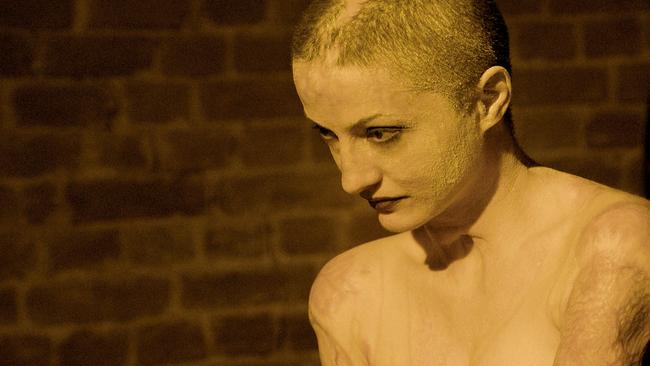
The French Dispatch
(Wes Anderson, US)
This jaunty, delicious tribute to The New Yorker and similar magazines boasts a stellar cast and limitless invention on the part of its director. An anthology of “an obituary, a travel guide and three features”, the film is probably an acquired taste but a very special one.
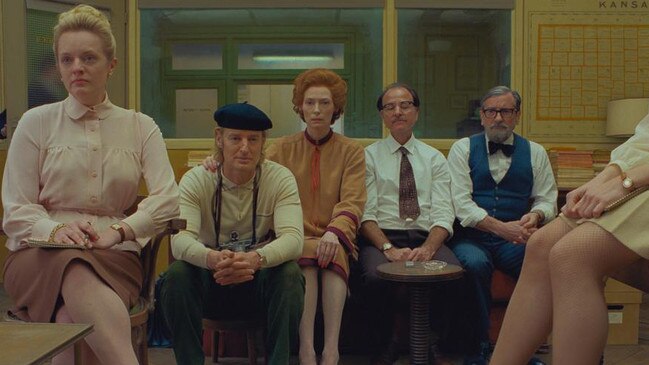
The Last Duel
(Ridley Scott, US)
The best of the mainstream Hollywood films seen so far this year, this medieval epic is told, like Rashomon, from the different perspectives of its three main protagonists, rival knights Matt Damon and Adam Driver and the woman they both love, Jodie Comer. The battle scenes are exceptionally well-staged.

Last Night in Soho
(Edgar Wright, UK)

Wright’s affectionate tribute to British cinema of the 1960s, including Hammer horror films, combines nostalgia with modernism in the story of a naive young woman (Thomasin McKenzie) haunted by her alter-ego (Anya Taylor Day) and an unsolved mystery.
Nitram
(Justin Kurzel, Australia)
Against expectations, the best Australian film of the year was this controversial take on the troubled young man, superbly portrayed by Caleb Landry Jones, who was responsible for the Port Arthur massacre. There are also exceptional performances from Judy Davis and Anthony LaPaglia as his parents and Essie Davis as the woman who becomes his only friend.
The Power of the Dog
(Jane Campion, New Zealand)
Campion made a triumphant return to the cinema with this handsome western, set in Montana in the 1920s, and featuring top-class performances from Benedict Cumberbatch and Jesse Plemons as rival brothers, Kirsten Dunst as the woman who comes between them, and an exceptional Kodi Smit-McPhee as her son.
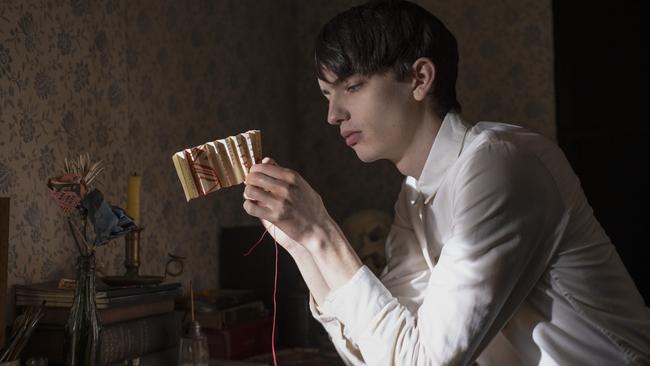
Riders of Justice
(Anders Thomas Jensen, Denmark)
A very black and ingeniously plotted comedy-thriller filled with unexpected twists and turns. Mads Mikkelsen is in top form as a misguided avenger.
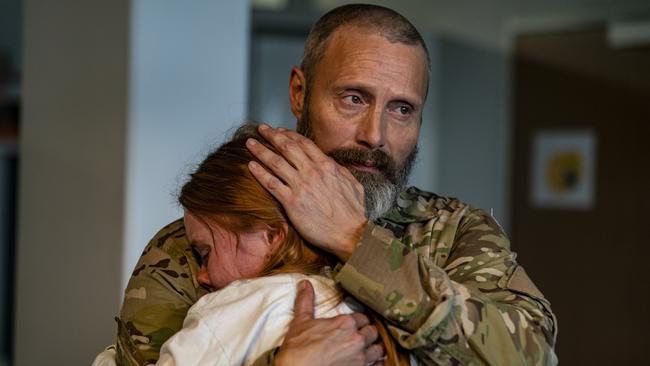
Supernova
(Harry McQueen, UK)
A deeply moving film in which Colin Firth and Stanley Tucci play a gay couple who have lived together for many years and who make a final road trip together to visit friends and family when one of them falls sick.
The United States vs. Billie Holiday
(Lee Daniels, US)
A sad, angry film that depicts the crusade against the great singer by the FBI, with the full encouragement of an openly racist J. Edgar Hoover. Andra Day, who looks and sings a lot like Holiday, is very fine in the leading role.
West Side Story
(Steven Spielberg, US)
Spielberg’s triumphant reworking of the 1957 Broadway hit and the 1961 Oscar-winning movie is a really terrific musical, perfectly cast and with flawless choreography, above. The tragic romance is as moving as ever it was.
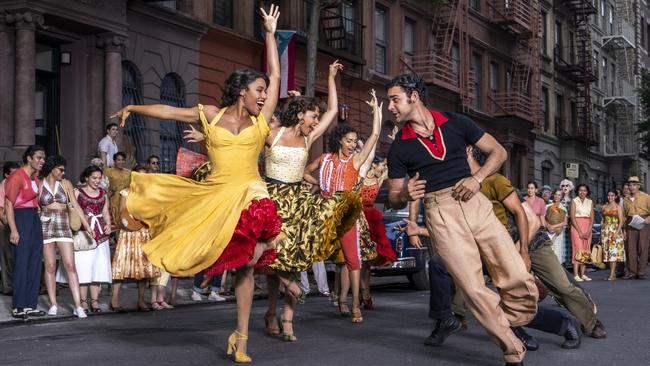
-
From Gladys:
Despite my hopes at the close of 2020, many of the films I saw this year were from the comfort of my living room. The size of our screens had no bearing on the quality of the movies that came our way but next year I hope it will be different. There’s nothing quite like popcorn and surround sound to heighten anticipation of a movie.
Unlike David, I felt the absence of Marvel and DC films sorely in 2020. In 2021, they returned to the fray but I found Patty Jenkins’ Wonder Woman 1984 and Cate Shortland’s Black Widow unexpectedly disappointing.
On the other hand, Destin Daniel Creton’s Shang-Chi and the Legend of the Ten Rings and Michael Giacchino’s Spider-Man: No Way Home were the electrifying, crowd-pleasing fare that have made comic book movies a tentpole in cinema.
Martin Scorsese may have compared superhero flicks to theme parks, but movies don’t always need to be serious – and I’m always along for the ride.
And there was no shortage of thought-provoking projects based on high culture. Japanese director Ryûsuke Hamaguichi’s Drive My Car, an adaptation of a short story by Haruki Murakami, was a quiet, powerful portrait of love.
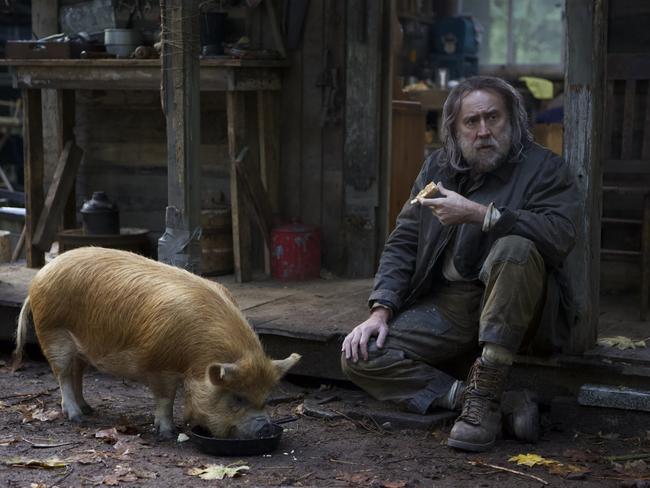
Michael Sarnoski’s Pig starred Nicolas Cage as a truffle hunter in one of the most affecting performances of his career. Maggie Gyllenhaal’s directorial debut The Lost Daughter, adapted from Elena Ferrante’s novel of the same name, dissected trauma and motherhood with similar intensity; Olivia Colman as magnetic as always.
I do agree with David that Daniel Craig’s final performance as James Bond in No Time To Die led the action thrillers, and gave fans a satisfying conclusion.
I was also taken with the edge-of-your-seat fight scenes that permeated Ridley Scott’s critique of medieval misogyny in The Last Duel, bolstered by stellar performances from Matt Damon, Adam Driver and Jodie Comer. And of course swords also clashed in A24’s The Green Knight, the indie darling delivering yet another sleeper hit with Dev Patel as Gawain in an Arthurian retelling. Notably, this year I renewed my love of documentaries.
What a cornucopia of rich non-fiction there was, from Morgan Neville’s Roadrunner: A Film About Anthony Bourdain, to Robert Greene’s procession, a harrowing probing of sexual abuse within the Catholic Church.
We had Michael Dweck and Gregory Kershaw’s The Truffle Hunters, a loving portrait of truffle connoisseurs in Piedmont, Italy, and Ahmir “Questlove” Thompson’s Summer of Soul, an archival piecing-together of the 1969 Harlem Cultural Festival, leaving me in awe.
But you can count my list below as the must-see from 2021.
Bo Burnham: Inside
(Bo Burnham, UK)
In the midst of a bleak mid-year lockdown in Sydney, Bo Burnham’s comedy musical gave me much to smile about. This
one-man project captured the existential zeitgeist with the catchiest of tunes, all while offering sharp and poignant insights into our collective claustrophobia.
Dune
(Denis Villeneuve, US)
The Frank Herbert novel Hollywood was fearful of re-making received the adaptation it deserved this year with Villeneuve’s lingering, poetic treatment of the author’s sci-fi universe. With intricate costumes, breathtaking set pieces and arresting performances, this epic stuns in scale, faithfulness and ambition.
Flee
(Jonas Poher Rasmussen, Denmark)
I have a weakness for animated documentaries – Marjane Satrapi’s Persepolis kickstarted this – and Rasmussen’s retelling of gay refugee Amin Nawabi’s life only furthers this affinity. Nawabi’s childhood in Afghanistan, and eventual escape to Moscow and Denmark are rendered in exquisite, expressionistic detail. One of the most moving films of the year.
Judas and the Black Messiah
(Shaka King, US)

The assassination of Black Panther chairman Fred Hampton is dramatised to galvanising ends in this Shaka King biopic, starring Daniel Kaluuya in his Oscar-winning main role. A searing condemnation of racial injustice that couldn’t be more relevant, and will leave you with its afterimage long after the credits close.
Minari
(Lee Isaac Chung, US)
This American drama of a South Korean family in 1980s Arkansas is almost entirely in a foreign language, and anchored in the earnest and memorable performances of Steven Yeun, Han Ye-ri and Young Yuh-jung.
Chung’s hand, along with the cinematography of Lachlan Milne, make their unique window into the American Dream an indelible one.
Passing
(Rebecca Hall, US)
Rebecca Hall’s directorial debut sees her adapt a 1929 Nella Larsen novel of the same name, the story of two black women – Tessa Thompson’s Irene, and Ruth Negga’s Clare, who chooses to
“pass” as white.
Both actresses shine as their characters grapple with questions of jealousy, race and identity, and as their lives become more intertwined, dread on the horizon looms larger. The use of black and white enhances the tragedy.
The Harder They Fall
(Jeymes Samuels, US)
With a cast including Idris Elba, Regina King and LaKeith Stanfield, this revisionist Western is certainly star-studded – but that’s not what makes it great. Samuel’s reimagining of the exploits of 19th century black cowboys injects fresh verve into the genre. A classic revenge tale told to the beat of a vibrant hip-hop soundtrack.
The Lost Leonardo
(Andreas Koefoed, Denmark)
This is a thrilling examination of the Salvator Mundi, the $450m painting, purportedly by Leonardo da Vinci, that remains the subject of controversy and mystery. The question the documentary poses is ultimately that of the Ship of Theseus: how much of an original painting can be restored, before the conservator becomes the artist?
The Suicide Squad
(James Gunn, US)
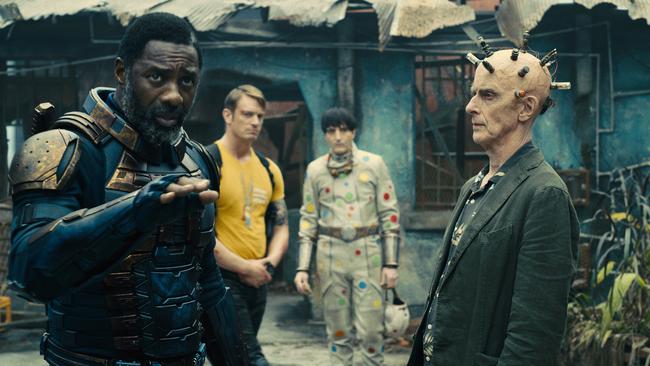
I loathed 2016’s Suicide Squad, but I adore the work of James Gunn. So I’m thrilled to say that his revisiting of this DC ensemble was hands down the best superhero movie of 2021. Irreverent, hilarious and unabashedly chaotic, Idris Elba, John Cena and Margot Robbie also impress. Best of all, the fight scenes are choreographed beautifully, both gritty and balletic.

To join the conversation, please log in. Don't have an account? Register
Join the conversation, you are commenting as Logout